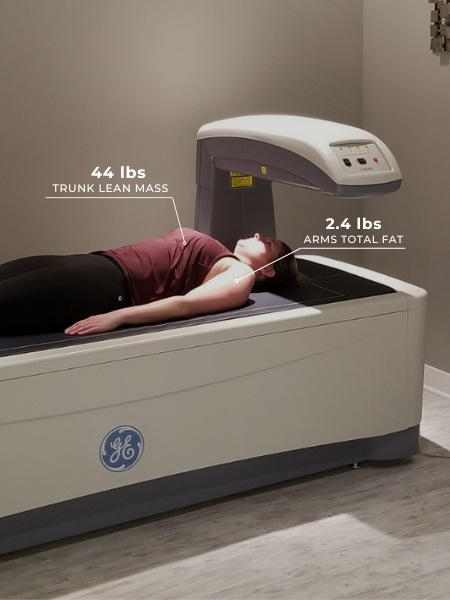How To Prepare For Your Upcoming Visit
DexaFit Body Scan
Fast for at least 2 hours prior to your scan. Limit physical activity (no exercise, please!) & stay hydrated.
Wear athletic attire or casual clothing without any metal.
You’ll be asked to empty your pockets and remove metal items like watches, belts, glasses, and jewelry.
Avoid taking any calcium supplements in the 24 hours prior to the scan.
No gastrointestinal contrast, barium or other contrast mediums and radionuclides within 48 hours of your appointment.
During the scan you will relax on an open-air DEXA scan table. The process is quick and uses minimal radiation, equivalent to about four bananas worth of exposure, or a few hours of natural background radiation. The DexaFit scan is a straightforward, non-invasive procedure designed for your comfort and convenience, providing valuable insights into your body composition.
VO2 Max Fitness Test
Fast for a minimum of 3 hours before your test (water is fine).
Limit your activity before your visit (no exercise).
Refrain from taking any caffeine or stimulants the day of your test.
Wear workout clothes and athletic shoes (the test is done on a treadmill or bike).
During a VO2 Max test, you'll perform a graded exercise test on a treadmill, starting at low intensity and gradually increasing to your maximum effort. You'll be fitted with a mask that measures your oxygen consumption and CO2 output, providing data on your aerobic capacity. The test is designed to safely determine your fitness level under careful monitoring.
RMR Metabolic Test
Fast for a minimum of 5 hours (water is fine) before test.
Limit your activity beforehand (no exercise).
Refrain from taking any caffeine or stimulants the day of your test and avoid alcohol within 12 hours of it.
Wear comfortable clothing. Note: casual and even business attire are also acceptable for this test as you will just be relaxing in a chair.
Your RMR accounts for about 70% of your Total Daily Energy Expenditure (TDEE). Knowing it is essential for accurately gauging your daily calorie needs. This information is critical whether you're aiming to lose weight, build muscle, or maintain your current state. It's the foundational number on which your nutrition and fitness plans should be built.



